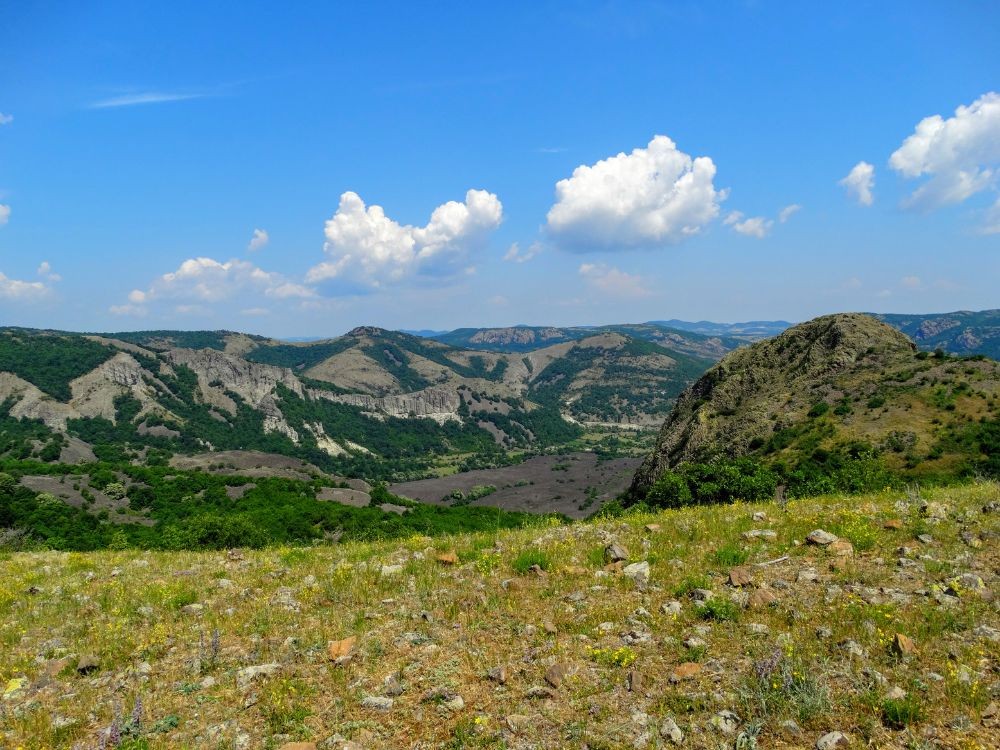26-year-old Lin Yuxiang from China has been studying political science in Birmingham, UK, with a focus on Bulgarian democracy and political life. The young woman has been living in Bulgaria for a year and has been studying the political life and activities of the parties before the parliamentary elections in this country in October.
This is part of the preparation for her upcoming doctoral thesis. Fate linked her with Bulgaria by chance, but today this connection seems to be stronger than ever. When she graduated from high school the girl decided that she wanted to study a foreign language and thus ended up among the students of "Bulgarian Philology" at the University in Beijing. Along with Cyrillic, she started learning about Bulgarian culture, the traditional yogurt, rose oil, folk songs and dances, etc. After a year of educational training in England, she arrived in Bulgaria and began combining theory with practice when studying the peculiarities of the Bulgarian way of life and culture.
"Bulgarians like joking a lot. Humor is a very important element of your life. Life may not be rosy, bad things may happen, but you keep joking,” the student says. “Even when I was in China, I learned about these jokes. Another significant difference is that people in my country make more plans for the near and more distant future, while people here live for the moment," she told BNR-Kardzhali.

Lin Yuxiang says that she managed to visit many places in this country. She admires the Rila and Rhodope mountains and really liked a local dish called patatnik.
She travels mainly by train. "I look at the BDZ schedule and that's how I choose the destination," she says in perfect Bulgarian with a smile. Of course, these trips are often linked to political meetings, party events and visits of party leaders to various towns. Such events help her get acquainted with the political life in the country and its young democracy.
"Bulgarian democracy seems to me to be very different from that in England or the USA, for example. I find common features with the democracies in Central and Eastern Europe, like the fact that new parties are constantly being born. Perhaps, in this century, with the possibilities of the new social media, it is much easier to attract people to believe in a new formation and make it part of the government through their voice. I think this is good for the entry of new ideas and people, but the complications come after that and that's where I see the main problems of the Bulgarian political system today. There is lack of long-term plans leading to stability. Many of the problems cannot be solved in a month, they require time and consistency," Lin Yuxiang says.
By the time she leaves this country, she will have seen two parliamentary votes. According to her, this speaks of "some kind of mistake" that brings with it a number of difficulties in local governance and in the clear perspective for the development of regions. Foreign policy also suffers from similar political instability because the uncertainty of what will happen tomorrow discourages international investments in the country. Speaking about what she saw in the plenary hall of the 47th National Assembly, Lin points out:
"I think that the parties in the National Assembly focused exclusively on their different views. And I think it is much more important and effective to look for similarities when solving issues."
She gives a very simple example. "There's no leftist or rightist way to throw your litter," she says. “Garbage is simply thrown into the bin. People here should think more about these little things. There should be more unity and work," the future political expert says.
In just a few months, Lin Yuxiang will return to the UK to finish her dissertation and we can only hope that the autumn in Bulgaria would be charged with the positivism this young woman has.
Text: Vesela Krasteva /based on an interview by Radka Petkova, BNR-Kardzhali/
English version: Al. Markov
Photos: BNR-Kardzhali, BGNES, Ani PetrovaKrasimir Karailiev was born in Slovakia, but his ancestry is from Bulgaria. He is a descendant of Bulgarian gardeners, whose fame spread to a number of European countries towards the end of the 19th and in the first half of the 20th century. The memory..
Born at the end of 1989 in Sofia, he is a child of the transition period in Bulgaria. He grew up with kung fu movies and the mysticism of the Shaolin Monastery in China. His path passed through aikido training, The National Academy of..
Dimitar Dimitrov breeds goats, fruit trees, California worms and, until recently, horses. But now his greatest love is peacocks. In the village of Susam in the Haskovo region, he looks after 300 large and 200 small colourful birds of 26 varieties,..

+359 2 9336 661
